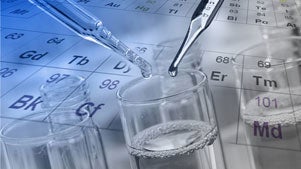New Jersey may expand school water testing statewide

(Big Stock photo)
Likely on the fast track of the Democratic leadership, a bill filed this week would require all New Jersey schools to test for lead in their drinking water and mandate public disclosure of the results.
The bill, sponsored by New Jersey Senate President Steve Sweeney and two top legislators from Newark, includes an unprecedented requirement for schools to immediately test for lead. The measure is in response to revelations last week that 30 Newark public schools had found elevated levels of lead in their drinking water, forcing them to shut off fountains and provide alternative sources.
But few think this is just a Newark problem, and the Sweeney bill — co-sponsored by state Sen. Teresa Ruiz and Ronald Rice Sr., both Democrats from Newark — would appropriate $3 million for the testing of more 2,000 schools across the state.
“When 30 school buildings in Newark alone are found to have elevated levels of lead in the drinking water, it is time to acknowledge we have a potential health crisis in our schools,” the three legislators said in a letter to state Education Commissioner David Hespe.
The legislation would also require test results be made available to the public, and in cases where levels are above federal and state standards, that families be informed.
The Christie administration has yet to publicly comment on the measure, but the governor this week said the state Department of Environmental Protection is closely monitoring the situation in Newark.
“I think that the public school district, the mayor’s office, and the DEP have been working very well together,” Gov. Chris Christie said on Tuesday.
“We’re going to make sure that the problem gets addressed,” he said.
The bill was not yet released, but its summary was provided by the Senate majority yesterday:
“This bill would require every public school to immediately test the drinking water in the school for the presence of lead. This testing would be conducted in accordance with guidelines provided by the Department of Environmental Protection (DEP) in conjunction with the Department of Education (DOE). Each public school would be required to provide a copy of the test results to both the DOE Commissioner and DEP Commissioner, as well as make them available to the public, free of charge.”
“The public school would also be required to notify parents and guardians of children attending the school of the test results. In the event the testing detects elevated levels of lead in the drinking water, the public school would be required to take immediate steps to provide an alternate drinking water supply at that school until the water has been remediated and deemed safe for consumption.”
“The bill would appropriate $3 million from the General Fund to the DOE to pay the costs of the testing required by the bill. The DOE would reimburse each public school for the costs of the testing upon receipt of appropriate documentation that the testing was completed.”
“Lead in drinking water comes from lead soldering, lead pipes, and leaded brass faucets. Too much lead in the human body can damage the nervous system, brain, and kidneys. Young children are at the greatest risk of toxic effects of lead.”
_________________________________________
NJ Spotlight, an independent online news service on issues critical to New Jersey, makes its in-depth reporting available to NewsWorks.
WHYY is your source for fact-based, in-depth journalism and information. As a nonprofit organization, we rely on financial support from readers like you. Please give today.




